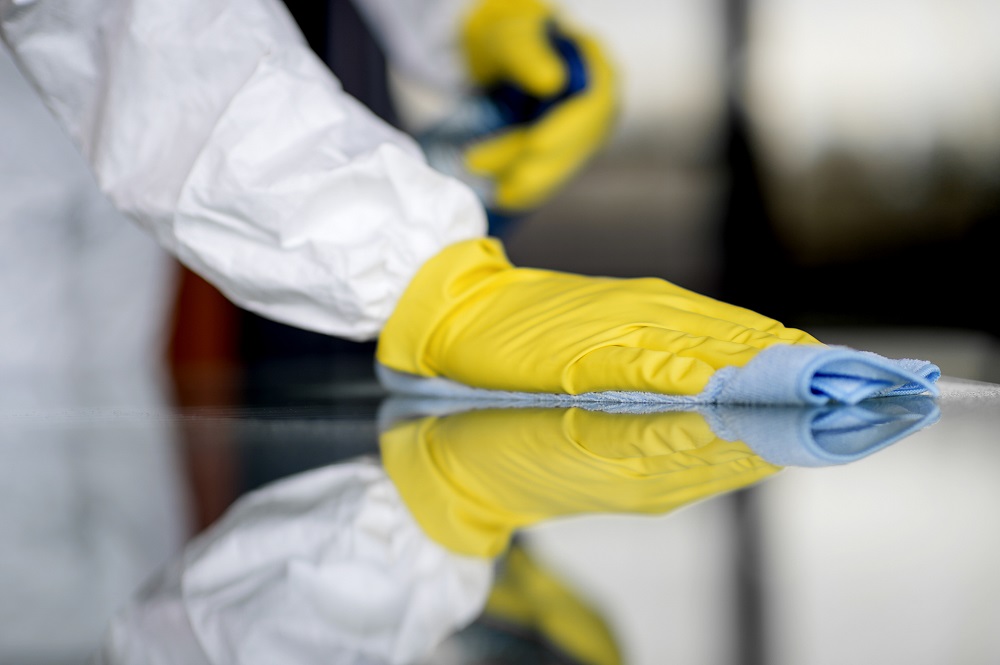
The COVID-19 pandemic has had an immense impact on the hospitality industry. The broad limitations placed on the industry have resulted in severe cash flow problems for many restaurants and an est. 288,000 Australian workers will lose their jobs, even if only temporarily.
Restaurant operators report a significant effect on revenue – with some expecting as much as a 70 per cent drop.[1]
While some restaurants resume business, others are delaying this process until later phases in their reopening plans. Despite the timing, one thing is clear: the hospitality industry will need to be prepared for a new standard of cleanliness.
So how can hotels and restaurants establish a culture that reinforces the role of cleanliness? It requires businesses to overhaul cleaning procedures, conduct thorough training and implement new employee-centric policies.
Cleaning the right way
The hospitality industry will need to rethink their approach to cleaning as the pandemic continues to bring cleanliness to the forefront of everyone’s minds. There are several considerations when establishing new cleaning procedures, including:
- Frequency – Enhanced cleaning and disinfection, in both front-of-house (FOH) and back-of-house (BOH) areas, will reduce the spread of potentially harmful germs throughout. Determine the right frequency depending on the size and set-up, the foot traffic and other key factors. This may be every 30 minutes or every two hours. To maintain productivity without compromising performance, look for a disinfectant that has a short contact time, such as 60 seconds.
- Thoroughness – Provide employees with a one-step disinfectant cleaner that is safe on people and surfaces, but tough on pathogens. For COVID-19, look for disinfectants that are legally supplied in Australia and listed in the Australian Register of Therapeutic Goods (ARTG). For food contact surfaces, a cleaner disinfectant can be used for added assurance, but they must rinse the surface after the required contact time for disinfecting per the label use directions.
Cleaning beyond high-touch surfaces is crucial, as COVID-19 spreads easily and quickly. In addition to using approved chemicals, the industry must be thorough in maintaining cleaning tools.
For example, while microfiber cloths can remove up to 99.9 per cent of bacteria, they can also spread germs to surfaces if they’re reused too often without laundering.
- Accountability – Confirming compliance with new policies and procedures is just as important as cleaning regularly and diligently. Methods for keeping employees on track include: creating a cleaning schedule for staff members to complete throughout the day that mangers review; have leadership conduct random FOH and BOH cleanliness checks; and set a reminder every 30 minutes to remind everyone to perform hand hygiene.
Teaching core values and processes
One of the most effective ways to make a positive cultural shift is by investing in employee training. Training both seasoned workers and new employees helps everyone learn core values (such as cleanliness, health and safety), understand the expectations and access expert content along with best practices.
With many employees not working or working part-time until businesses can fully reopen, there’s an opportunity to roll out remote online training.
A cloud-based e-learning platform can improve knowledge, skills and performance. Look for a program with digital resources like videos, content from regulatory experts and reporting/product information.
Training topics should include infection prevention, food safety and personal hygiene. When employees understand the “why” behind hand hygiene, social distancing measures and proper cleaning, it minimises the risk of lapses in cleanliness.
Serving up cleanliness
With many hotels and restaurants still struggling to maintain momentum it’s important to take time to educate employees about the role of cleanliness.
Training ensures all employees understand the expectations around cleaning and know how to execute the processes and procedures correctly. This not only supports the well-being of workers but also the health and safety of patrons who are eager to return.
Peter Teska is global infection prevention application expert, Diversey
Comment below to have your say on this story.
If you have a news story or tip-off, get in touch at info@13.238.154.125.
Sign up to INCLEAN NZ’s newsletter.